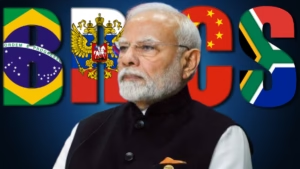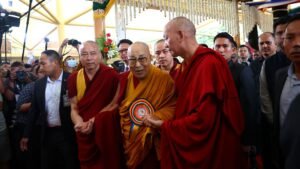Massachusetts Institute of Technology (MIT) suspended Indian-origin PhD scholar Prahlad Iyengar, citing his pro-Palestinian essay. This has initiated new debates about the limits of free speech and academic freedom in handling sensitive political issues on campus and the rights of students to express dissenting opinions.
Why Was Prahlad Iyengar Suspended?
Prahlad Iyengar, a Ph.D. student in the Electrical Engineering and Computer Science Department, was suspended until January 2026. He was suspended for his essay “On Pacifism,” which appeared in the student journal Written Revolution. According to the school’s administration, the essay includes language and imagery that can be read as advocating violent protests: references to anti-colonial movements and inclusion of posters of the Popular Front for the Liberation of Palestine, considered a terrorist organization in several countries.
The administration said the article’s content was “troubling” and violated MIT policies. This is Iyengar’s second suspension, following a similar situation last year after pro-Palestinian protests on campus.
The Written Revolution Ban
In addition to suspending Iyengar, MIT banned the Written Revolution journal from campus and issued directives prohibiting its distribution under the MIT name or through any affiliated organization. This sweeping action further escalated tensions, and critics labeled it a crackdown on free speech.
Prahlad Iyengar: Responses and Reactions
Many in the quarters have severely criticized it as a decision. MIT Coalition Against Apartheid opposed and termed it the sharpest sanction for speech-related activity in recent memory after leading protests and arguing that punishment meted out to Iyengar indicates silencing pro-Palestinian voices in academic spaces.
He termed it the “unprecedented attack” against free speech and academic freedom, arguing that the MIT community must reject censorship. He drew a systematic effort to silence dissenting voices criticizing the situation in Gaza.
Balance free speech and institutional policies:
The suspension exemplifies the greater tension between free speech and institutional policy on campus. Universities are institutions of learning and debate and often have to walk between open discussion and a safe and inclusive environment. Critics argue that such actions have the effect of chilling speech and preventing discussions on critical global issues.
Prahlad Iyengar: Appeal Process and What Next
It might strip Prahlad Iyengar of his National Science Foundation Graduate Research Fellowship and effectively end his time at MIT. This comes as Iyengar is schedule to appear on December 11 to argue his case before CMIT cancellor Marc K. Lawrence, serving as his last chance at reversal.

FAQs
1. What drove MIT to suspend Prahlad Iyengar?
MIT rescinded Iyengar’s scholarship for publishing an essay containing language and imagery that were interpreted to incite violence, referring to the Popular Front for the Liberation of Palestine (PFLP).
2. What is the Popular Front for the Liberation of Palestine (PFLP)?
The PFLP is a Marxist-Leninist group that has been listed as a terrorist organization by several countries, including the United States, because of its history of violent acts.
3. What is the Written Revolution journal?
Written Revolution is a student-run publication at MIT. It ban from campus following the controversy surrounding Iyengar’s essay.
4. How has the MIT community reacted?
The MIT Coalition Against Apartheid and other student groups have protested the decision, describing it as a severe infringement on free speech rights.
5. What are the potential consequences of Iyengar’s suspension?
Suspension might lead to Iyengar losing his fellowship and ending his academic career at MIT.







Be First to Comment